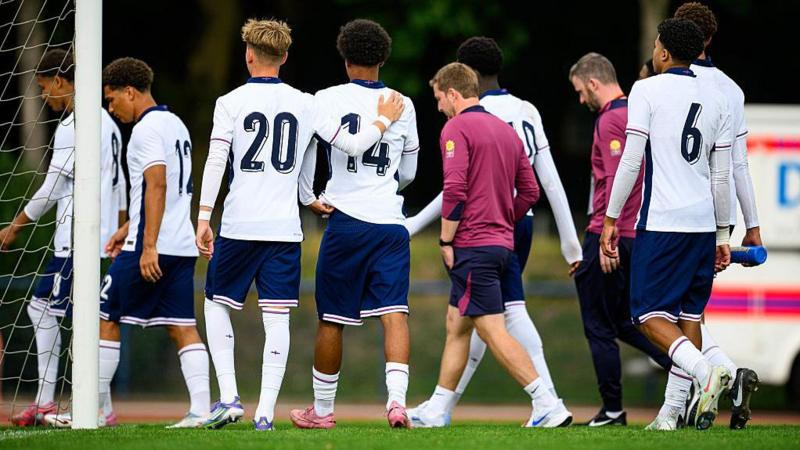England U17s Match Halted Twice Due to Racist Abuse Allegations




In a glaringly clear sign that soccer still has significant challenges to overcome in combating racism, an under-17 friendly match between England and Germany in Erfurt was disrupted not just once, but twice due to alleged racist abuse from the stands. The recurring incidents during this game underline a well-documented problem within soccer—an ugly blight that soils the heart of what is otherwise known as the Beautiful Game.
The event, intended to foster camaraderie and sportsmanship between young hopefuls from two of soccer’s most storied nations, took a disappointing turn when players from the England team were subjected to racist chants. The first halt came shortly after the match started, signaling a deep-seated issue that refuses to be silenced despite continued efforts from governing bodies to stamp out racism from the stands.
The referee, adhering to FIFA's three-step protocol for dealing with discrimination during games, paused the match to request an announcement over the stadium’s public address system. This system warns fans that the match could be abandoned should such behavior continue. However, the initial measures seemed insufficient, as the match faced a second interruption due to a recurrence of the abuse.
Understanding the gravity of the situation, team officials and coaching staff came together, demonstrating commendable resolve and unity. The England team, visibly upset yet stoic, stood together, echoing the strength they carry not just as players but as young individuals standing against racial prejudice.
This incident isn’t isolated. It reflects a broader, more disturbing trend seen across sports stadiums around Europe. In recent years, various incidents involving racially charged abuse from spectators towards players during professional leagues have come to light, prompting calls for more stringent measures and tougher sanctions against perpetrators.
The response from soccer’s governing bodies has been evolving, albeit slowly. Campaigns like FIFA’s “Say No To Racism” reflect an ongoing acknowledgment and willingness to tackle the issue head-on. Yet, enforcement and education are critical in these efforts—areas which many activists and community leaders argue need more attention and resources.
Germany’s soccer association, known as Deutscher Fussball-Bund (DFB), promptly issued an apology to the England players and affirmed their commitment to fighting racism. “Racism has no place in football or society,” DFB’s statement echoed, a sentiment that's become a rallying cry against this pervasive issue.
The England Football Association also made a statement, expressing their intolerance towards any form of discrimination and assuring that the welfare of their players is paramount. They highlighted that steps are being taken, in collaboration with German authorities, to investigate the incident and ensure accountability.
For these young athletes, international friendlies are supposed to be exciting opportunities to experience new cultures, forge international bonds, and showcase their talents on the global stage. Instead, events like these serve as stark reminders of the societal barriers that persistently shadow various facets of life, including sports.
While the match eventually resumed and concluded without further disturbances—an outcome certainly welcomed by players and fans alike—the incidents serve as critical reminders of the work still required to eradicate racism from soccer. Education, stringent enforcement of anti-racism laws and penalties, and a universal commitment to respect and diversity are crucial. These young players are not just the future of football but also of a more inclusive, respectful global society.
As the dust settles on the unfortunate events in Erfurt, the conversation undoubtedly turns towards what can be done to prevent such situations in the future. It’s imperative that all stakeholders in soccer—from administrative bodies and clubs to fans—continue to foster an environment where the sport transcends cultural and racial boundaries, celebrating what truly makes soccer the Beautiful Game: unity, passion, and respect.